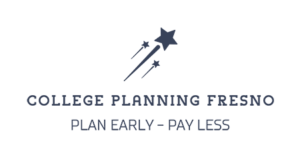How To Make the Cost of Textbooks As Cheap as Possible
It is easy for textbooks to get lost in the shuffle of college financial preparations.
After all, when compared to $40,000 in tuition or $10,000 in room and board costs, buying a few books may seem less significant.
But when we take a step back into the real world and reflect, paying nearly $1,000 for one semester of books seems like a travesty!
So while textbooks may be on a smaller scale than other aspects of your collegiate finances, knowing the ins and outs of textbook buying can save you a considerable amount of cash and frustration.
Paying for Textbooks: How to Keep the Costs Low
Just about anything you can buy online these days can be compared with retailers, re-sellers, or with private sellers all over the world and within minutes.
The internet has been equally generous to college students, who for years were forced to buy textbooks at marked-up retail prices from college book stores.
Selling back one’s used textbooks to the book store helped make this monopoly bearable, but students often faced a crisis of devaluation.
For example, that coffee stain on page 9 made your $120 history book suddenly worth $10, and they wouldn’t even take the $150 chemistry book because “the new edition is coming out soon.”
These days, though, while most other aspects of our financial lives have become complicated and overwhelming, buying and selling textbooks has become a relatively reasonable and extremely manageable experience.
If money is not an issue and your main concern is convenience or timing, then, by all means, buy your books at the college book store.
But if you are looking to save as much money as possible, here are some very reliable alternatives.
There are numerous websites out there devoted to buying and selling textbooks. They are the best way to pair buyers and sellers on a large scale and, as such, often provide you with the most options in terms of price and condition.
Major online sellers like Amazon and eBay also offer sections for textbooks where you can look through hundreds of options for each book to find the price and condition that is right for you (often with the cheapest shipping costs).
Used books will usually give you the best bang for your buck, but be aware that your book will probably not come in pristine condition. It may have rips, stains, highlighter marks, and more. But it will also save you a ton of money. Just plan ahead since you will have to wait for it to arrive.
These retailers give you the best chance to get your books at the lowest price, whether you are buying new or used. Just be sure to research the site ahead of time and avoid buying from sellers who have received poor reviews or feedback.
Many students are also starting to utilize textbook rental services where you rent your book for the semester at about half the cost of buying it and return it when you’re done with the class. You will save on the upfront cost, but remember you will not be able to sell it and get any money back later.
If technology isn’t your thing, or you want to buy your books in person, other ways to cut down on textbook costs include:
• Buying used books directly from other students (schools often have Facebook pages or campus-wide message boards for private textbook sales)
• Sharing books with other students in your class
• Trying to check-out the required textbook from your library
The library can be risky, however, since there will be limited copies and, most likely, a limit on how long you can keep it.
When it comes to getting the highest return on your textbooks at the end of the semester, the internet, once again, is usually the best option.
Copious amounts of sellers, such as Amazon, offer textbook buyback programs which will pay far more for your used books than the college book store will.
You can also choose to sell them privately online or to your classmates. By selling them at marked down prices, you will still get more money back than the bookstore will give, and you will also help fellow students save.
Textbook trading is another excellent option, often facilitated by the schools themselves. Ask around and see if such an option exists at your college.
Whichever route you choose, doing some research and shopping around (especially online) will most assuredly save you a ton of money when you buy, and pay you the most when you sell your textbooks.
A Unique Opportunity
You may not find this opportunity anywhere else in the college planning space.
It’s an “inside look” at your college funding situation with an authorized college funding advisor – absolutely free.
We’ll help you figure out where you stand, including whether or not you can lower your expected family contribution (EFC) – and maximize your eligibility for financial aid. What’s more – you set the date and time for the call.
Sign up for your free, no obligation consultation by following this link.
(It’s important to recognize that individual circumstances and efforts can significantly impact outcomes. Engagement and commitment from both the family and student are indeed crucial factors in achieving positive results. The advice and direction provided by CPN (College Planning Network) and CPF (College Planning Fresno) can serve as valuable guidance, but ultimately, it’s up to the individuals involved to actively participate and implement the recommendations effectively.)

